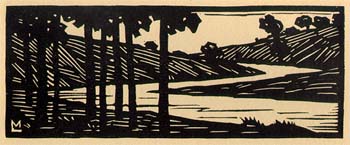

SEVERAL TRIBES HAVE TAKEN OPENLY- HONESTLY, I WAS GOING TO SAY... TO THE PROFESSION OF ROBBERY; THEY MAKE NO SECRET OF IT; THEIR MEN ARE BRIGANDS UPON THE HIGHWAYS, & PLUNDER PE0PLE WITH A GOOD CONSCIENCE. "THE COUNTRY BELONGED TO US; CONQUERORS HAVE DESPOILED US OF IT. WHERE IS THE HARM OF RELIEVING THEM OF A FEW TRIFLES NOW? WHATEVER WE DO, WE SHALL NEVER GET BACK OUR POSSESSIONS!" . . .

 HE people of Guinea also believe that souls continue their existence in the depths of the sea. The Esquimaux thinks himself lost if he wanders but a little distance from the coast, his heart fails him if he does not feel himself to be in the immediate proximity of walruses and fish. Some missionaries were describing the joys of the Christian paradise. They were interrupted by- HE people of Guinea also believe that souls continue their existence in the depths of the sea. The Esquimaux thinks himself lost if he wanders but a little distance from the coast, his heart fails him if he does not feel himself to be in the immediate proximity of walruses and fish. Some missionaries were describing the joys of the Christian paradise. They were interrupted by-"And the seals? You say nothing about |
seals. Have you any seals in yout heaven?" "Seals? Certainly not. What would seals do up there ? But we have angels and archangels, we have cherubim and seraphim, Dominions and Powers, the twelve Apostles, the four-and-twenty elders." "That's all very well, but what animals have you?" "Animals, none...Yes, though, we have the Lamb, we have a lion, an eagle, a calf... but not your sea-calf; we have --" "That's enough; your heaven has no seals, and a heaven without seals cannot suit us!" |
"PRIMITIVE FOLK" |
ELIE RECLUS |



 ECLUS was to us a brother whose kindness and simplicity were known among all the comrades.
ECLUS was to us a brother whose kindness and simplicity were known among all the comrades. ![]() When he came to our circle, he would quietly enter, and seat himself up on the one wooden bench, the only piece of furniture our local boasted, and he would address the audience in his turn, developing for us his conception of attractive work, which made us very enthusiastic. When the hour arrived for taking his train, he departed, encouraging us in our modest work.
When he came to our circle, he would quietly enter, and seat himself up on the one wooden bench, the only piece of furniture our local boasted, and he would address the audience in his turn, developing for us his conception of attractive work, which made us very enthusiastic. When the hour arrived for taking his train, he departed, encouraging us in our modest work.![]()
At the time of Kropotkin's imprisonment, we always had recourse to Reclus, either for an article, or to replenish the coffers which were often empty. ![]()
After public conferences he would pass the remainder of the evening with the comrades, and for us it was a happy time of real enjoyment. Then we would escort him to the station, taking leave of each other with a hearty hand-clasp and the hope of seeing one another again soon.![]()
The memory of this great heart, this friend of the humble, always ready to succourt the unfortunate, will never be effaced.
FRANCOIS DUMARTHERAY

THE ART OF MAN, NOTWITHSTANDING THE OPINION OF SOME MOROSE MINDS, HAS IN ITS POWER TO EMBELLISH EVEN
| THE ASPECT OF FREE NATURE, giving it the charm of prospect and variety, and above all, by placing it in harmony with the deepest seated feelings of those who inhabit it. In Switzerland, on the shores of the great lakes, and in front of blue mountains and glittering glaciers, how many instances there are, both of farmhouses and villas, which, by their grassy lawns, their clumps of flower-beds, and their shady walks, render the face of nature still more beautiful, and charm, as if by some pleasant dream of happiness, the traveler who passes by! ¶At the present time, the freedom from prejudice which science gives, the love of liberty which is spreading far and wide, the feeling of solidarity which often influences us without our knowledge, and teaches us the fact that the earth belongs to all, have singularly enlarged the breadth of view taken by man. |
¶The class of savents, although less numerous than that of the artists, are still more useful in their labors of discovery, and have also become wanderers over the earth, and the whole world now forms their sphere of study. It was while traveling from the Andes to the Altai that Humboldt composed his admirable Tableaux de la Nature, dedicated, as he says, "To those who, impelled by the love of liberty, have been able to tear themselves away from the troublesome waves of life."... ¶From the simple harmony of its forms, the regularity of all its external features, the purity of the air which surrounds it, and the light which colors it, the surface of the planet is, as a whole, of magnificent beauty; but that which lends special grace and charm to the earth is the inflnite number of organisms which people it.... |
Elisée RECLUS
"THE OCEAN"

